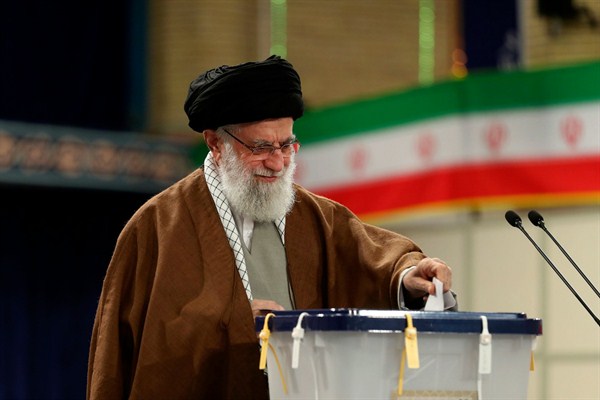Iran’s parliamentary elections last month were an unmitigated success for conservatives and hard-liners. Aided by unprecedented low turnout and the disqualification of thousands of their opponents, they won 221 of the legislature’s 290 seats, while reformists and moderates took only 19—down from 121 in the 2016 elections.
The outcome profoundly changed the balance of power in Tehran, which will have serious repercussions for Iran’s domestic and foreign policies. Forces loyal to Supreme Leader Ali Khamenei are now well-positioned to consolidate power over Iran’s governing institutions and likely win the presidency in 2021, when Hassan Rouhani, a centrist who was first elected on a platform of reform in 2013, will be term-limited and unable to run for reelection.
In the lead-up to February’s vote, the Islamic Republic was grappling with multiple overlapping crises that together posed the greatest existential challenge to its existence since Khamenei came to power in 1989. First and foremost, the country was on the brink of war with the United States. Tensions, which had already intensified after the Trump administration withdrew from the Iran nuclear deal in 2018, escalated to a dangerous level in early January when the U.S. killed Maj. Gen. Qasem Soleimani, commander of the elite Quds Force of the Islamic Revolutionary Guard Corps, and Iran retaliated by launching missiles at two military bases in Iraq where American troops were stationed.

